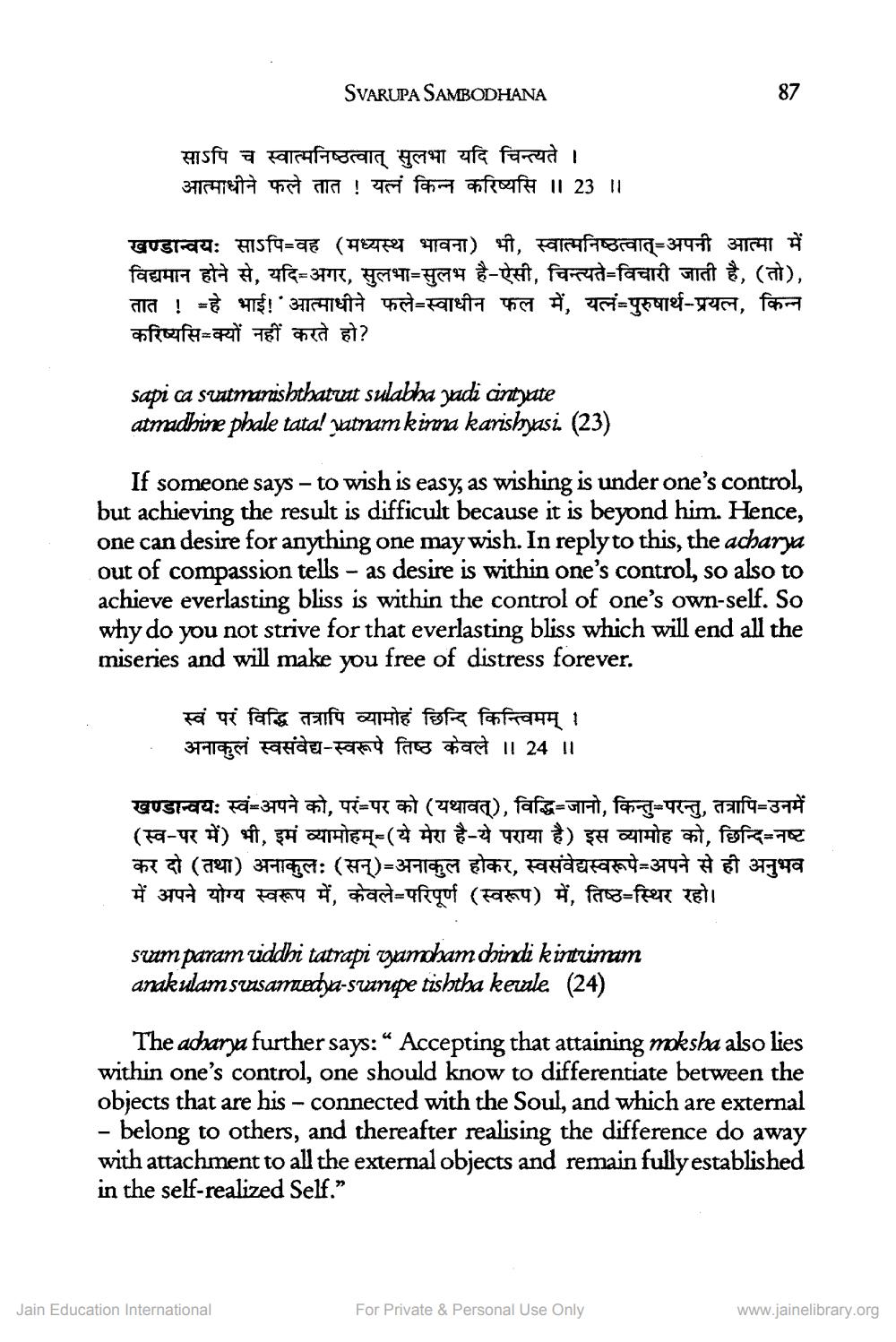________________
SVARUPA SAMBODHANA
साऽपि च स्वात्मनिष्ठत्वात् सुलभा यदि चिन्त्यते । आत्माधीने फले तात ! यत्नं किन्न करिष्यसि ।। 23 ।।
खण्डान्वयः साऽपि वह (मध्यस्थ भावना) भी, स्वात्मनिष्ठत्वात् अपनी आत्मा में विद्यमान होने से, यदि अगर, सुलभा सुलभ है-ऐसी, चिन्त्यते-विचारी जाती है, (तो), तात ! -हे भाई! आत्माधीने फले-स्वाधीन फल में, यलं-पुरुषार्थ-प्रयत्न, किन्न करिष्यसि क्यों नहीं करते हो?
sapi ca svatmarishthatunt sulabha jadi cirtrate atmadhine phale tata! vatramkima karishasi. (23)
If someone says – to wish is easy, as wishing is under one's control, but achieving the result is difficult because it is beyond him. Hence, one can desire for anything one may wish. In reply to this, the acharya out of compassion tells - as desire is within one's control, so also to achieve everlasting bliss is within the control of one's own-self. So why do you not strive for that everlasting bliss which will end all the miseries and will make you free of distress forever.
स्वं परं विद्धि तत्रापि व्यामोहं छिन्दि किन्त्विमम् । ... अनाकुलं स्वसंवेद्य-स्वरूपे तिष्ठ केवले ।। 24 ।।
खण्डान्वयः स्वं-अपने को, परं-पर को (यथावत्), विद्धि-जानो, किन्तु-परन्तु, तत्रापि उनमें (स्व-पर में) भी, इमं व्यामोहम्-(ये मेरा है-ये पराया है) इस व्यामोह को, छिन्दि-नष्ट कर दो (तथा) अनाकुल: (सन्) =अनाकुल होकर, स्वसंवेद्यस्वरूपे-अपने से ही अनुभव में अपने योग्य स्वरूप में, केवले परिपूर्ण (स्वरूप) में, तिष्ठ स्थिर रहो।
svamparam viddhi tatrapi yamcham chindi kintuimam anakulam suasanaecha-scarpe tishtha kerale. (24)
The acharya further says: “ Accepting that attaining moksha also lies within one's control, one should know to differentiate between the objects that are his - connected with the Soul, and which are external - belong to others, and thereafter realising the difference do away with attachment to all the external objects and remain fully established in the self-realized Self."
Jain Education International
For Private & Personal Use Only
www.jainelibrary.org




